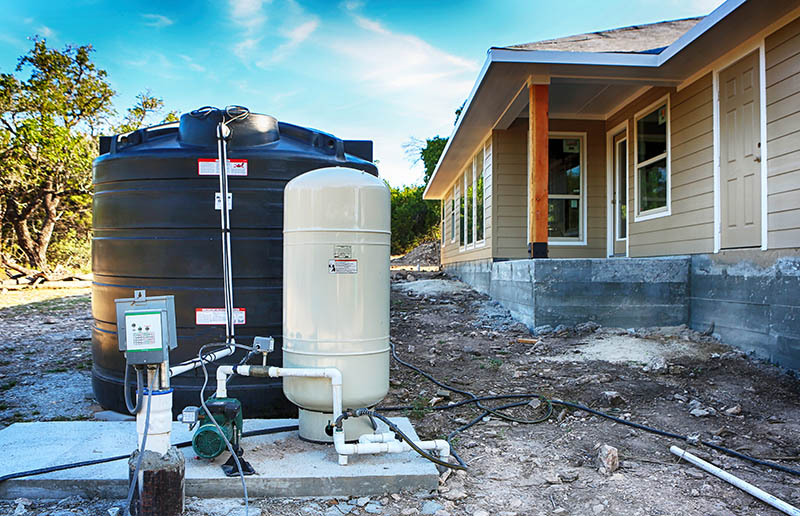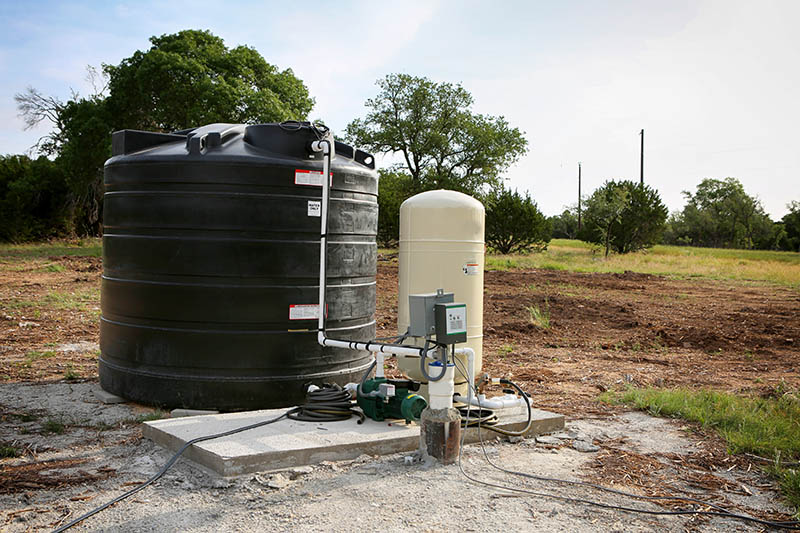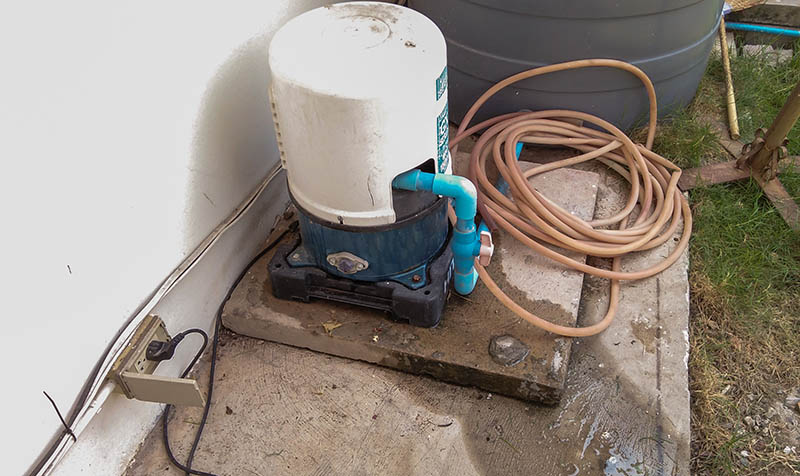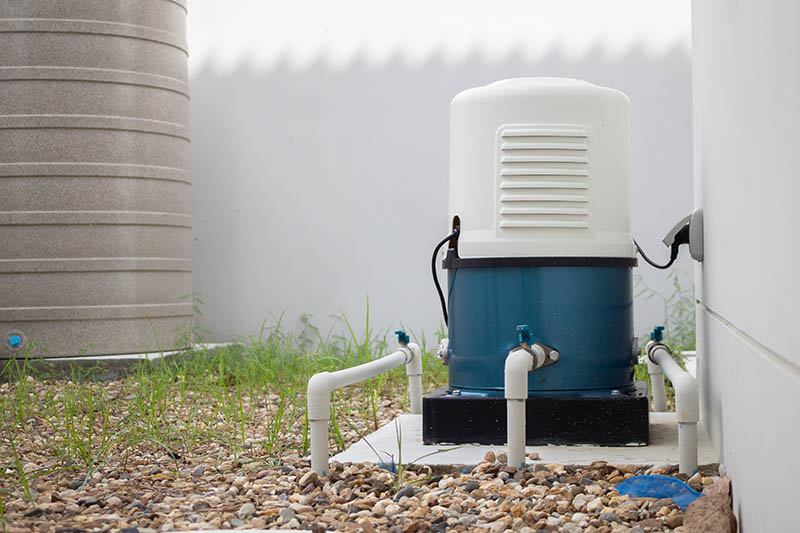How Many Watts Does a Well Pump Use? 5 Ways to Reduce Consumption
-
Greg Iacono
- Last updated:

Well water is said to be some of the best water you can get, but you need a well pump to get it. Well pumps are simple devices that serve an essential purpose; they pump well water into your home so you and your family can use it to wash, clean, and hydrate your life. Like any electrical device, a well pump uses electrical power. That makes purchasing one with a decent power rating essential to keep your energy bills reasonable. How much power depends on the pump’s size and rating and how many watts it uses.
If you’re curious how many watts a well pump uses, the average well pump uses about 1,400 watts and has an energy rating of 700 watts. Remember, however, that the amount of wattage used will increase or decrease based on the horsepower of your well pump. For example, a 1 Hp well pump has a running wattage of 2,000 and a starting wattage of 4,000. A ¾ horsepower (hp) well pump has a lower running wattage of 2,500 and a lower starting wattage of 3,000. If you don’t use much water, you might consider a ½ hp well pump, which uses 1,200 watts and has a starting wattage of 2,000.
In other words, the lower the horsepower of your well pump, the fewer watts used and the lower your electric bill. Do most well pumps consume a lot of power? When well pumps start, yes, but as they attain running speed, the usage drops significantly.
Now that you know how many watts a well pump uses, you might have other questions about their function and how they work. Can a solar generator run a well pump, for example, and can you plug your well pump into a portable generator? We have the answers to those questions and several more below to help you choose the best well pump for your family and lifestyle.
Can You Plug a Well Pump Into a Portable Generator?
Plugging a well pump into a portable generator during a storm or power outage is not recommended and is difficult (and dangerous) to do. That’s because most well pumps are hard-wired to your home, so plugging them into your generator’s outlet won’t be possible. Electrical experts also recommend highly against disconnecting the hard-wired well pump and trying to plug it into a generator. The two systems are incompatible, and connecting them could cause a short or damage to both devices. Portable generators are made explicitly for plug-in appliances and devices only.

The 5 Ways You Can Reduce the Power Consumption of a Well Pump
What you need to realize about water well pumps is that they use a relatively small amount of electricity compared to many other home appliances. That said, if you don’t maintain them or don’t have the correct equipment, a water well pump will use more energy than necessary, and sometimes much more. Use the tips below to prevent that from happening and your electric bills from increasing.
1. Replace an Old Well Pump With a New One
Mechanical devices don’t last forever, including well pumps. The bearings in their electric motors wear out, and tolerances that were once in the perfect ratio are now worn down.
Some well pumps get so worn out and plugged up that they can’t even produce enough pressure to turn off and instead run 24/7, gobbling up electricity as they go. If that’s what’s happening with your well pump and your electric bills have skyrocketed, installing a new pump should solve the problem instantly.
2. Check for Water Leaks in Your Pump System
Water leaks can force your water well’s pump to work harder than it needs to. Water leaks also happen to be one of the easiest problems to detect. Here’s how:
- Turn off the power to your well pump and equipment.
- Note the pressure on the pressure gauge.
- Wait for an hour or two.
- Check the pressure gauge again.
If the gauge remains unchanged, that’s great news because there are no leaks. If the pressure is lower or completely gone, there’s a leak somewhere that needs to be plugged immediately! Several things can leak water in a well pump system, including toilets, the check valve, underground piping, and more. You might even have a leak in one of the pipes in your wall, which will increase your power consumption and your monthly energy bill.

3. Reduce the Number of Pumps Being Used
Some wells use an older pumping system that’s been patched or otherwise adapted to meet increasing needs and usage. If that describes your well pump system, it might be time to revamp it and remove the extra pumps. For example, some systems pump water to a holding tank, which then gets pumped into the house.
This setup causes the need for two pumps, increasing your costs by double. Some systems use three and even four pumps and multiple holding tanks when, in fact, only one of each is needed. In a situation like this, consulting an expert and having them submit plans for a completely new well pump system is recommended.
4. Pump During Off-Peak Electric Hours
Depending on where you live, electricity might be cheaper at night. If it is, putting your well pump on a timer would be a fantastic idea so that it pumps only during the most cost-effective hours of the day (typically in the middle of the night). If you’re unsure, a quick call to your electrical energy provider can tell you if and when they charge less.
5. Reduce the Size of Your Pump
While this tip won’t reduce the power consumption of your current well pump, it will lower your power consumption if completed. That’s because it means taking out the bigger pump in your well that’s more than you need and replacing it with a smaller pump that gets the job done.
This pump problem is often caused by a contractor or homeowner who thinks a pump that’s bigger than needed is a better choice. However, when your electric bills are incredibly high, you realize how this thinking can backfire. Changing the current well pump to a smaller one might be a big initial expense, but it will save you money in the long run.
Should You Turn off a Well Pump Before Going Away?
If you plan to go away for a week or two (or longer), you might wonder if you should turn off your well pump system. The answer experts give is that, yes, turning off your well pump when you go away is OK and a good idea. That’s because when your well pump is turned off, you will decisively negate several potential problems.
For example, the chance of a burst pipe anywhere in your home is eliminated with the water off. That reduces the chance of flooding and severe water damage to zero, perfectly protecting your home and belongings. Also, with the pump system off, the chance of an electrical problem is also zero, as nothing in the well pump system will be electrified. In other words, turning off your well pump when you go away is recommended and will give you 100% freedom to not worry about it while you’re away.

Is It Easy to Turn off a Well Pump?
Although all well pump systems are different, shutting them off is usually straightforward. It involves shutting off the breaker that connects your well pump system to your home’s electrical system. Here’s how you do that:
- Locate the electrical panel in your home.
- Open it and locate the circuit breaker to your water well pump. It will likely be written on the circuit breaker with a pen or magic marker.
- Flip the breaker from “on” to “off”
- Close the electrical panel.
Some experts also recommend turning off an electric water heater if you have one. That way, if a water line breaks, your system won’t pull water into the heater. If, for some reason, you can’t locate the correct circuit breaker or have a question, consulting with a licensed electrician would be the best choice.
Watt Usage Comparison Chart
If you’re curious about how many watts your well pump uses compared to other appliances, the chart below will help.
| Appliance | Power Rating (watts) | Hours Per Day | Daily Power Use (kilowatt hours) |
| Well Pump | 1100 W | 8 | 8.8 kWh |
| Refrigerator | 150 W | 12 | 1.8 kWh |
| Microwave | 1200 W | 0.2 | 0.24 kWh |
| Washer | 2400 W | 0.5 | 1.30 kWh |
| Hot Water Heater | 3600 W | 1.5 | 5.4 kWh |
| Split A/C | 1200 W | 6 | 5 kWh |
| Flatscreen TV | 200 W | 5 | 1.0 kWh |
Final Thoughts
How many watts a well pump uses depends on several factors, most importantly, the horsepower of your well pump. Other factors, however, do come into play, including the age of the system, the number of pumps being used, and the time of day the system is busy pumping water. The more work it is for your well pump to pump water into your home, the more watts it will use, and the higher your monthly electric bill. Luckily, well pumps running correctly don’t use excessive wattage, typically less than the average refrigerator or washing machine.
Well pumps might be simple devices, but they serve an essential purpose if your home’s water comes from the well in your backyard!
- https://oakvillepump.com/blog/2021/3/17/how-much-power-does-my-submersible-well-pump-use
- https://www.ready-able.com/ultimate-guide-to-well-pumps/
- https://www.freeingenergy.com/understanding-the-basics-of-electricity-by-thinking-of-it-as-water/
- https://www.thespruce.com/the-difference-between-watts-vs-volts-4767057
- https://www.groundwatergovernance.org/how-much-electric-power-needed-for-well-water-pump/#1
- https://www.envisupply.com/pumps/about-well-pumps.htm#:~:text=Well%20pumps%20use%20a%20huge,%2Fyr%2C%20would%20be%20sufficient.
- https://generxgenerators.com/2017/01/09/what-size-generator-do-i-need-to-backup-my-private-well-pump/
- https://oakvillepump.com/blog/2021/11/30/my-submersible-well-pump-uses-too-much-electricity-what-do-i-do
- https://www.weeksdrilling.com/should-you-turn-off-your-well-pump-when-leaving-town/#:~:text=If%20you%20plan%20to%20stay,burst%20while%20you%20are%20away.
Featured Image Credit: GSPhotography, Shutterstock
Contents
